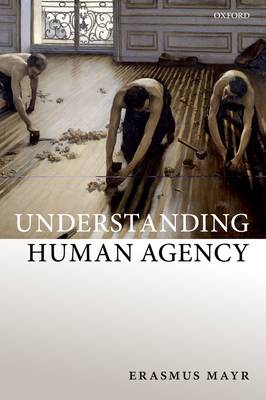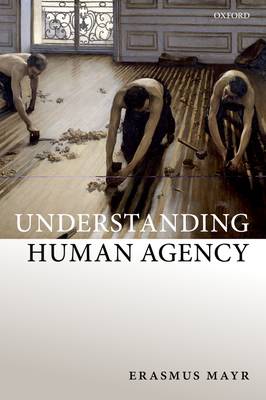
- Afhalen na 1 uur in een winkel met voorraad
- Gratis thuislevering in België vanaf € 30
- Ruim aanbod met 7 miljoen producten
- Afhalen na 1 uur in een winkel met voorraad
- Gratis thuislevering in België vanaf € 30
- Ruim aanbod met 7 miljoen producten
Zoeken
Omschrijving
Our self-understanding as human agents includes a commitment to three crucial claims about human agency: that agents must be active, that actions are part of the natural order of the universe, and that intentional actions can be explained by the agent's reasons for acting. While all of these claims are indispensable elements of our view of ourselves as human agents, they are in continuous conflict and tension with one another, especially once one adopts the currently predominant view of what the natural order must be like. One of the central tasks of philosophy of action consists in showing how, despite appearances, these conflicts can be resolved and our self-understanding as agents be vindicated. The mainstream of contemporary philosophy of action holds that this task can only be fulfilled by an event-causal reductive view of human agency, paradigmatically embodied in the so-called 'standard model' developed by Donald Davidson. Erasmus Mayr, in contrast, develops a new agent-causal solution to these conflicts and shows why this solution is superior both to event-causalist accounts and to Von Wright's intentionalism about agency. He offers a comprehensive theory of substance-causation on the basis of a realist conception of powers, which allows one to see how the widespread rejection of agent-causation rests on an unfounded 'Humean' view of nature and of causal processes. At the same time, Mayr addresses the question of the nature of reasons for acting and complements its substance-causal account of activity with a non-causal account of acting for reasons in terms of following a standard of success.
Specificaties
Betrokkenen
- Auteur(s):
- Uitgeverij:
Inhoud
- Aantal bladzijden:
- 328
- Taal:
- Engels
Eigenschappen
- Productcode (EAN):
- 9780199606214
- Verschijningsdatum:
- 14/11/2011
- Uitvoering:
- Hardcover
- Formaat:
- Genaaid
- Afmetingen:
- 155 mm x 236 mm
- Gewicht:
- 635 g

Alleen bij Standaard Boekhandel
+ 435 punten op je klantenkaart van Standaard Boekhandel
Beoordelingen
We publiceren alleen reviews die voldoen aan de voorwaarden voor reviews. Bekijk onze voorwaarden voor reviews.







